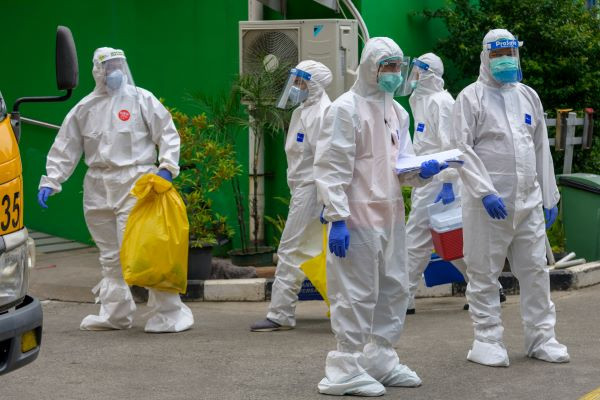Popular Reads
Top Results
Can't find what you're looking for?
View all search resultsPopular Reads
Top Results
Can't find what you're looking for?
View all search resultsA shot in the arm for global health security
By developing health-related bonds or investment projects, the Pandemic Fund can attract private capital and ensure a steady flow of resources.
Change text size
Gift Premium Articles
to Anyone

Current global challenges include geopolitical and trade tensions causing fragmentation, the urgent climate crisis, rapid digitalization transforming economies and societies, and health concerns made worse by pandemics and healthcare inequalities.
As the world grapples with the lingering impacts of COVID-19, it is clear that global health challenges are far from over, with future pandemics looming large. The world needs to be better prepared in the health sector. In this context, the Group of 20's (G20) establishment of the Pandemic Fund is a pivotal initiative to bolster global health security.
While the fund's current focus on prevention and preparedness is crucial, expanding its scope to include response measures is imperative. Moreover, innovative financing strategies are essential for the fund's sustainability. Indonesia’s dual role as both a donor and beneficiary underscores its critical position in this global health endeavor.
The COVID-19 pandemic exposed significant weaknesses in global health systems. According to the World Health Organization, over 750 million cases and nearly 7 million deaths had been reported globally as of early 2024. Since the Severe Acute Respiratory Syndrome (SARS) outbreak in 2003, a significant health threat has emerged approximately every five to six years.
The G20 initiative’s Pandemic Fund is a significant step toward enhancing global health security. The fund aims to provide financing to strengthen national, regional and global health systems.
As of early 2024, the fund has mobilized around US$2 billion in commitments from governments, philanthropic bodies and the private sector. Last year, the Pandemic Fund awarded US$338 million in grants, mobilizing over $2 billion to help 37 countries enhance their pandemic response capabilities. The fund is now processing its second award round.
However, a joint World Bank and WHO study estimates that an additional $10.5 billion per year over the next five years is needed to fill the investment gap at the country, regional and global levels to strengthen the capacity of low-income countries (LICs) and middle-income countries (MICs).



















